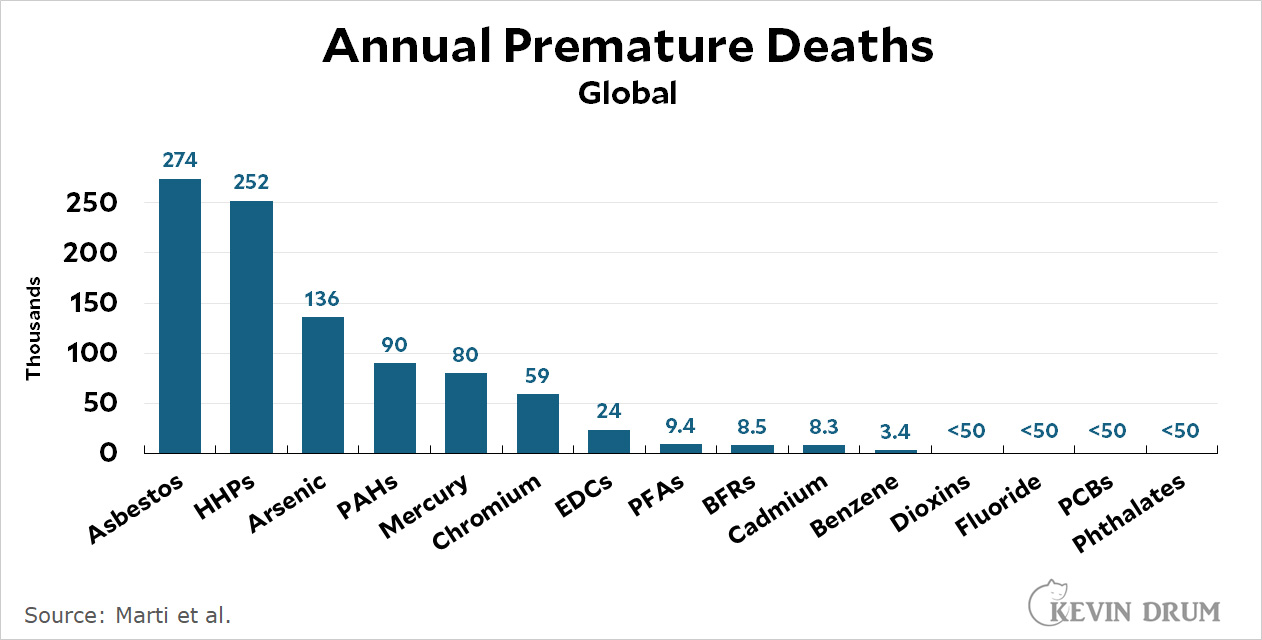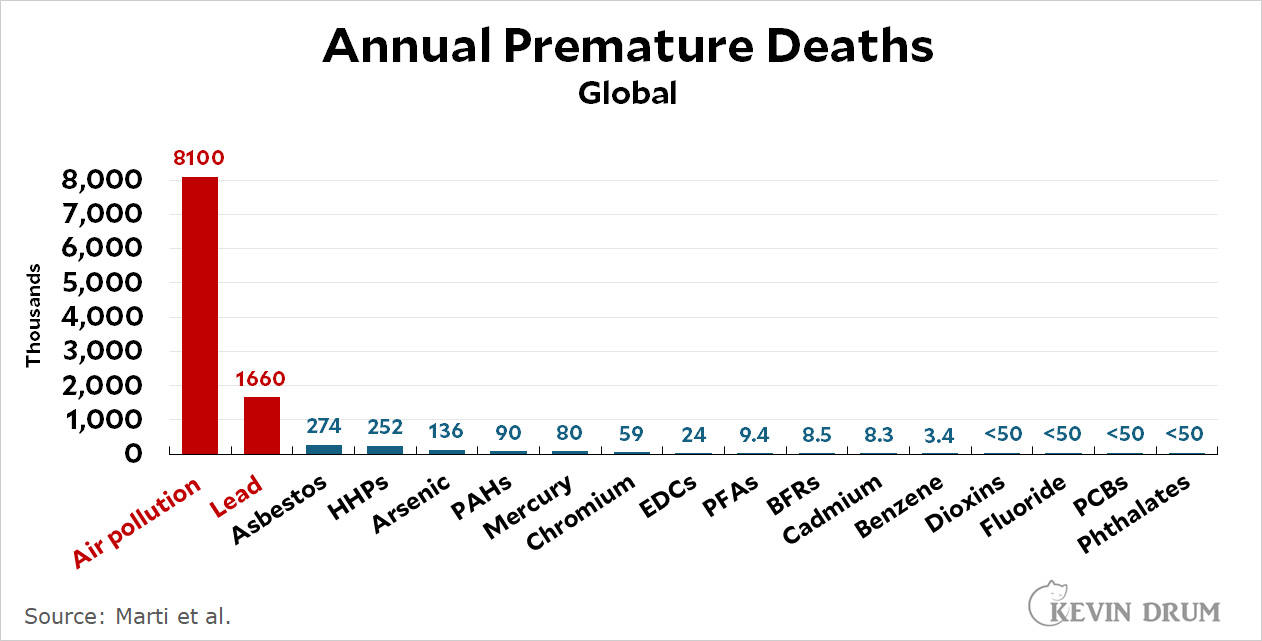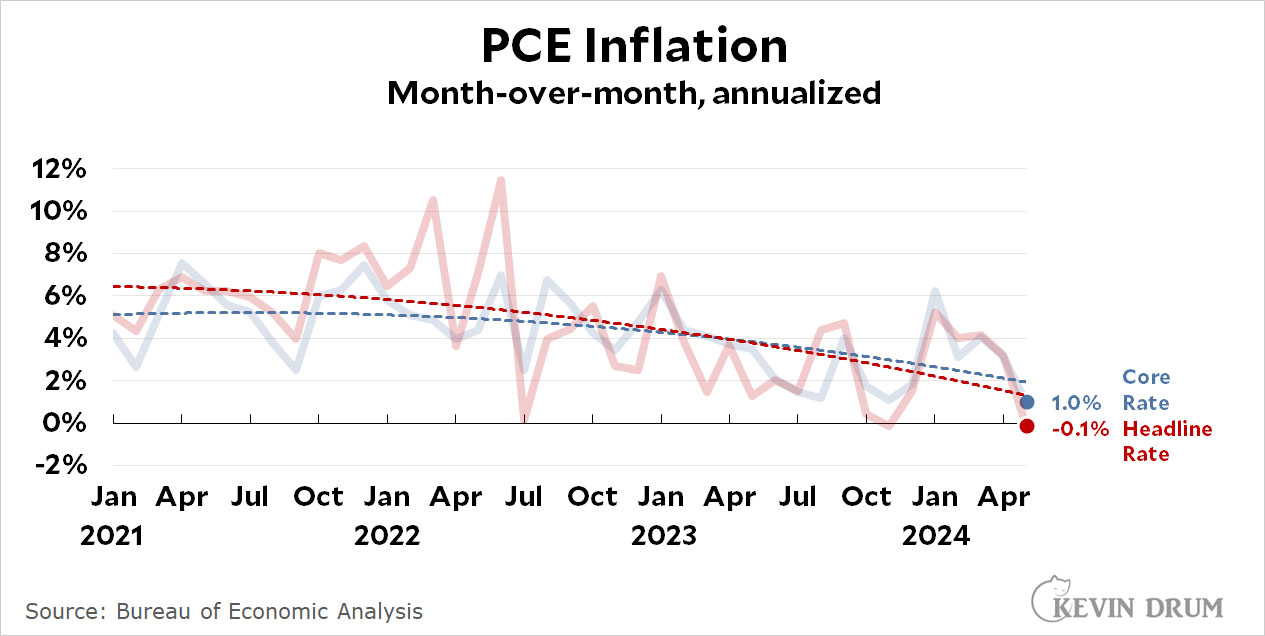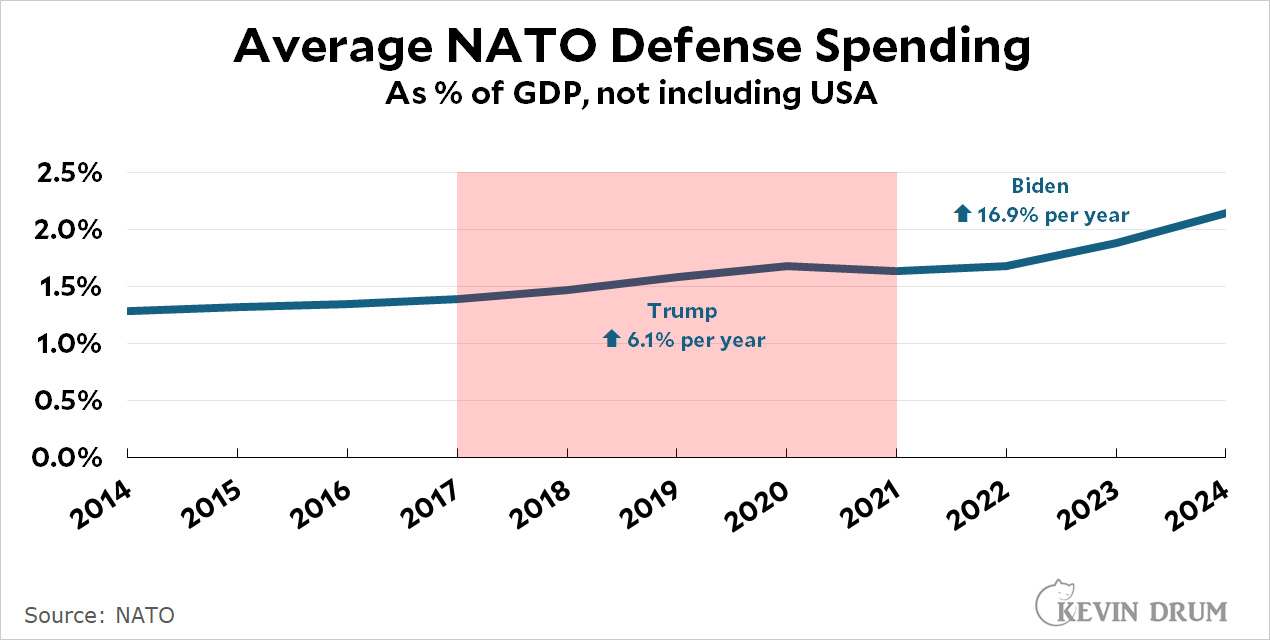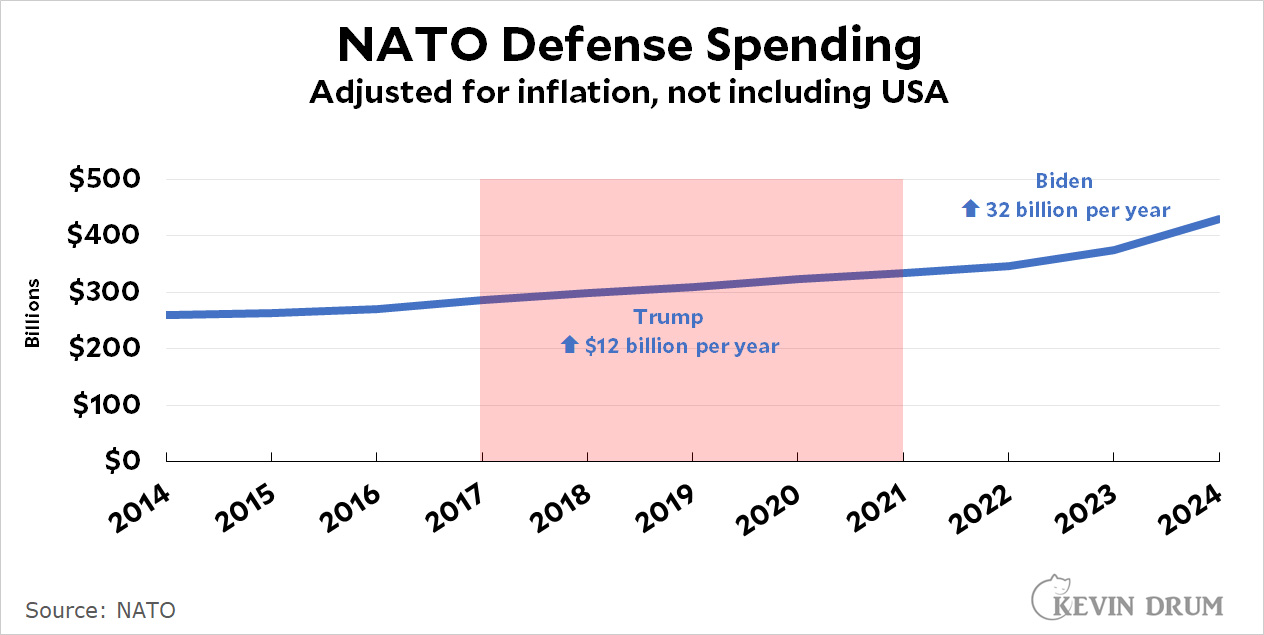I've seen a surprising amount of confusion over what it means that the Supreme Court has killed "Chevron deference."
But it's not complicated. In the Chevron case 40 years ago, the Court didn't say that federal agencies could just make up their own rules—or that judges couldn't overrule them. Judges can and do overrule agencies all the time.
All the Court said is that judges should defer to agencies if (a) the law is ambiguous, (b) the agency's interpretation is a "rational" and "reasonable" one, and (c) the interpretation is reached through formal proceedings.¹
That's it, and at the time it was published no one considered it an especially big deal because courts had long deferred to agencies anyway on pragmatic grounds—namely that complex modern rulemaking frequently required deep expertise that judges didn't have. Chevron merely changed the grounds for this deference and made it a little more explicit.
It may be, as some people have argued, that the case at hand in yesterday's decision really was an example of egregious overreach by a federal agency. If it was, however, the Court could easily have ruled against the Commerce Department without touching Chevron. They just had to declare that the department's actions weren't a reasonable interpretation of the law.²
In theory, Chevron is neither conservative nor liberal. It's merely a statement about the level of deference courts should show toward Congress and federal agencies, regardless of which party is in power. Nor, as the Wall Street Journal puts it, should it mean that Biden administration priorities are on "shakier legal footing."
In practice, though, it gives the Supreme Court cover to work its will more overtly if federal agencies are being reasonable but the justices don't like the results anyway. And since the Court looks set to be an activist conservative body for a good long time, that means its will is likely to be activist and conservative regardless of what's reasonable.
¹The last bit (limiting deference to formal proceedings) was added in a later case.
²They do this a lot, which makes it unclear just how much impact the end of Chevron will have. In a sense, all the Court did was codify what they've been doing for the past couple of decades anyway.


